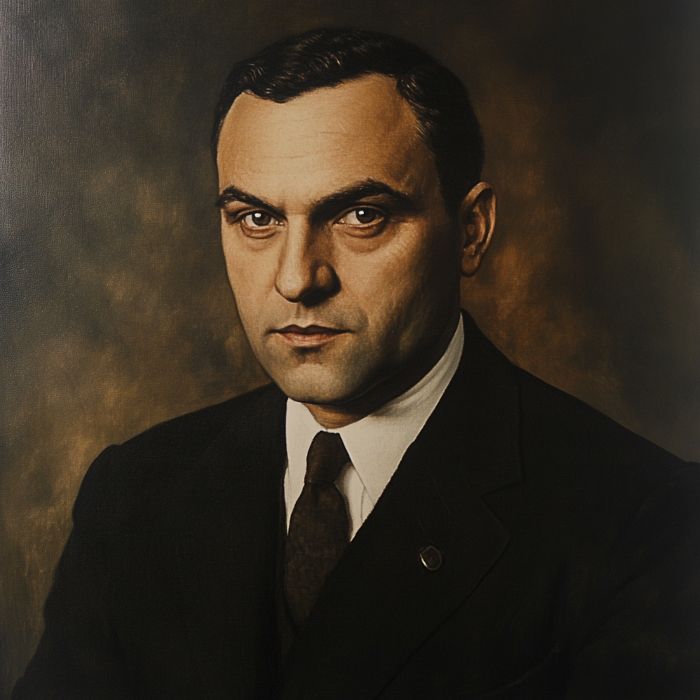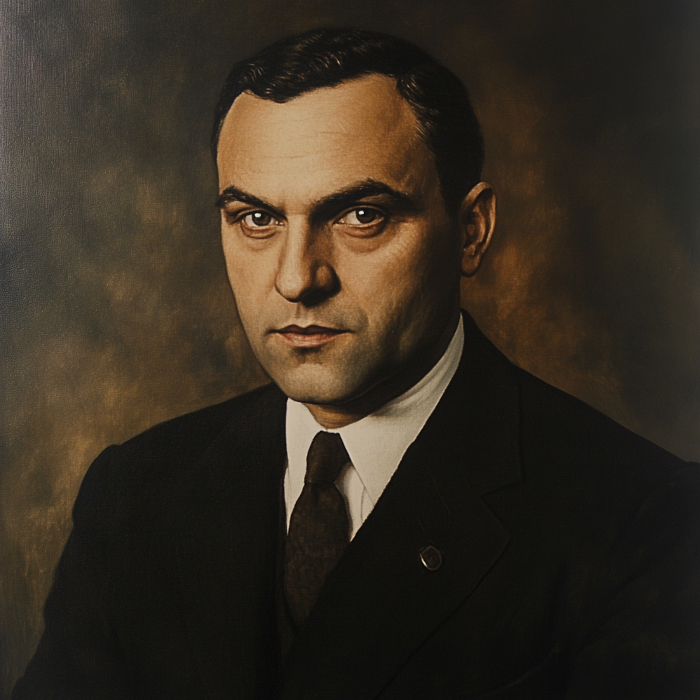


Lev Semyonovich Vygotsky (1896–1934) was a Soviet psychologist known for his pioneering work in developmental psychology and cultural-historical psychology. Vygotsky is often considered one of the most influential figures in the field of educational psychology. He is best known for his theories on cognitive development, particularly the concept of the Zone of Proximal Development (ZPD) and the importance of social interaction in learning. Vygotsky's work emphasized the role of culture, language, and social interactions in shaping cognitive development, positioning him as a foundational figure in constructivist theory.
Birth and Background: Lev Vygotsky was born on November 17, 1896, in Orsha, in the Russian Empire (now part of Belarus). He grew up in Gomel, a town in what is now Belarus. Vygotsky came from a well-educated family and was an avid learner from an early age. His father worked as a bank clerk, and his family valued education and culture, fostering his intellectual curiosity.
Education: Vygotsky studied law at Moscow State University, graduating in 1917. During his university years, he also pursued his interests in literature, philosophy, and psychology. After completing his degree, Vygotsky returned to Gomel, where he taught literature and psychology. He continued his studies independently, writing essays and giving lectures on a wide range of topics, including psychology, linguistics, and education.
Early Career in Psychology: In 1924, Vygotsky moved to Moscow, where he began working at the Institute of Psychology. He quickly gained recognition for his innovative ideas and deep understanding of psychological theory. His early work focused on the relationship between learning and development and challenged existing psychological paradigms, particularly the behaviorist models that were dominant at the time.
Cultural-Historical Theory of Cognitive Development: Vygotsky's most influential contribution to psychology is his cultural-historical theory of cognitive development. Unlike many of his contemporaries, Vygotsky believed that cognitive development was fundamentally influenced by social and cultural factors. He argued that children's cognitive development occurs through social interactions with more knowledgeable individuals, such as parents, teachers, and peers. He believed that the tools provided by culture—particularly language—play a central role in shaping thought processes.
Zone of Proximal Development (ZPD): One of Vygotsky's most famous concepts is the Zone of Proximal Development (ZPD), which refers to the difference between what a learner can do independently and what they can achieve with guidance or collaboration. Vygotsky argued that learning is most effective when it takes place within this zone, where a child can perform a task with the help of someone more experienced. The ZPD highlights the importance of scaffolding, a process in which a teacher or more knowledgeable person provides temporary support to help a learner achieve a task they could not complete alone. As the learner becomes more competent, the support is gradually removed.
Social Interaction and Learning: Vygotsky emphasized the importance of social interaction as the primary driver of cognitive development. He argued that learning is inherently a social process, occurring first at the social level (between individuals) and then at the individual level (internalized by the learner). This concept is often summarized by the phrase "social before individual", suggesting that all higher cognitive functions begin as interactions between people. For Vygotsky, learning was not an isolated activity but a collaborative one, shaped by interactions with others in a shared cultural context.
Language and Thought: Vygotsky viewed language as a critical tool for cognitive development. He believed that language and thought are initially separate systems in early childhood but gradually become interconnected through social interaction. Language, for Vygotsky, serves as both a means of communication and a tool for thinking, enabling children to organize their thoughts and solve problems. He also introduced the concept of private speech—the self-directed speech that children often use to guide their behavior. Vygotsky argued that private speech plays a key role in self-regulation and problem-solving, eventually becoming internalized as inner speech in adulthood.
Zone of Proximal Development (ZPD):
Scaffolding:
Social Interaction and Cooperative Learning:
Private Speech and Inner Speech:
Tools of Intellectual Adaptation:
Constructivism: Vygotsky's work laid the foundation for constructivist approaches to education, which emphasize the active role of learners in constructing their own understanding of the world. His theories suggest that students learn best when they are actively engaged in their learning and when they can interact with peers, teachers, and the environment.
Collaborative Learning: Vygotsky's emphasis on social interaction influenced the development of collaborative learning and cooperative learning approaches in education. His theories support the idea that students benefit from working in groups, where they can learn from one another and share diverse perspectives.
Differentiated Instruction: The concept of the Zone of Proximal Development has also influenced differentiated instruction, where teachers tailor their teaching strategies to meet the varying needs of students. By identifying each student's ZPD, teachers can provide appropriate levels of support to help students progress in their learning.
Role of the Teacher: Vygotsky saw the role of the teacher as a facilitator or guide who helps learners achieve their potential by providing appropriate levels of scaffolding. This role contrasts with the traditional model of the teacher as the sole source of knowledge. Instead, the teacher collaborates with the student, supporting them as they move through their ZPD and gradually develop independence.
Health and Death: Vygotsky's career was tragically cut short by tuberculosis, which he had battled for much of his life. He continued to work and publish despite his illness, producing a substantial body of research and writing in a relatively short time. He passed away on June 11, 1934, at the young age of 37. His early death prevented him from fully developing many of his theories, but his work was carried forward by his students and colleagues.
Rediscovery in the West: For several decades, Vygotsky's work remained largely unknown outside the Soviet Union due to political and linguistic barriers. However, in the 1960s and 1970s, his writings began to be translated into English and other languages, leading to a growing appreciation of his contributions to psychology and education. Vygotsky's ideas gained prominence in the West, where they became an essential part of the constructivist movement in educational theory.
Influence on Psychology and Education: Vygotsky's work had a profound influence on developmental psychology, educational theory, and special education. His emphasis on social and cultural factors in learning challenged earlier views, such as those of Jean Piaget, who focused more on individual cognitive development. Unlike Piaget, who saw development as a series of universal stages, Vygotsky viewed development as a socially mediated process that could vary depending on cultural context.
Neo-Vygotskian Theories: Many of Vygotsky's ideas were expanded upon by later theorists, who developed neo-Vygotskian approaches to learning and development. These theorists built on Vygotsky's insights into the social and cultural aspects of learning, emphasizing the importance of dialogue, social interaction, and scaffolding in education. Vygotsky's influence continues to shape contemporary theories of learning and child development, particularly in fields such as early childhood education and special education.
Lev Vygotsky was a pioneering psychologist whose theories on cognitive development, social interaction, and cultural influences have had a lasting impact on developmental psychology and education. His concepts of the Zone of Proximal Development, scaffolding, and the central role of language in cognitive growth have shaped how educators understand the learning process. Vygotsky's belief in the importance of social interaction as the driving force of cognitive development and his emphasis on the influence of culture were groundbreaking, providing a more holistic understanding of how children learn and grow.
Despite his short life, Vygotsky left a profound legacy that continues to influence educational theory and practice today. His ideas have provided the foundation for constructivist and collaborative learning approaches, emphasizing the importance of learners' interactions with their peers, teachers, and cultural tools. Vygotsky’s work remains relevant in modern education, offering valuable insights into how children learn best when they are actively engaged, supported, and connected to their cultural context.

We use cookies
We use cookies and other tracking technologies to improve your browsing experience on our website, to show you personalized content and targeted ads, to analyze our website traffic, and to understand where our visitors are coming from. Privacy Policy.